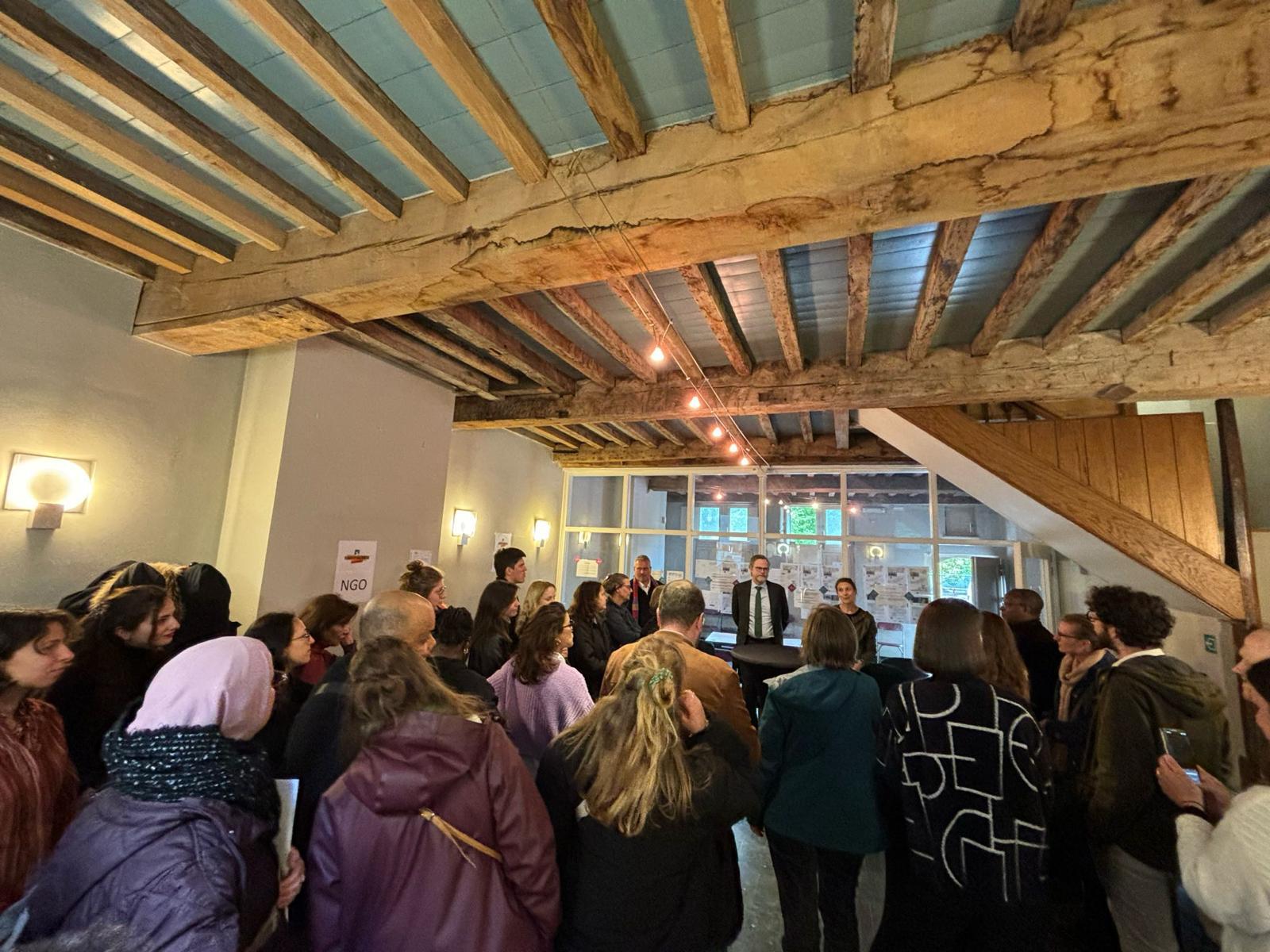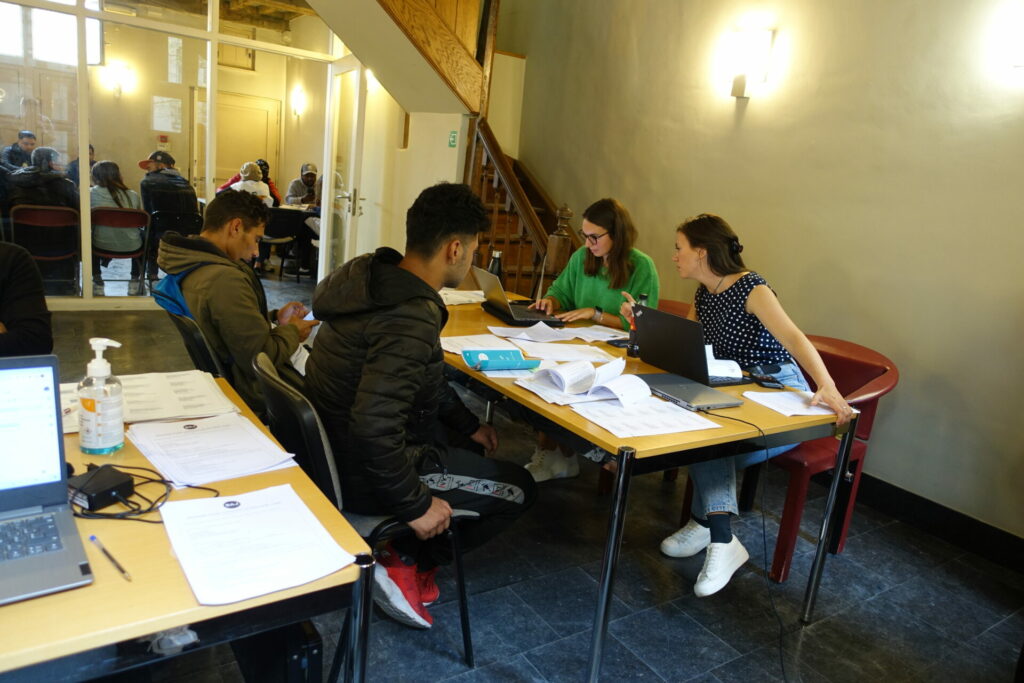The Voyaach Legal Helpdesk opened in April 2022, intended as a two-week stopgap for Belgium's crippling reception crisis. The fact that the initiative is still in full swing two years later is a testament to the State's failure to safeguard the human rights of new arrivals to the country.
A lively group of asylum seekers, lawyers and volunteers convened in Saint Catherine on Wednesday night to "celebrate" the two year anniversary of the Voyaach Helpdesk. Each individual is involved in some form or another in providing legal assistance to people lining up at the Federal Agency for the Reception of Asylum Seekers (Fedasil) across the road.
Thomas Willekens, policy officer at Vluchtelingenwerk Vlaanderen, has mixed feelings about the anniversary. "On the one hand, I feel happy because this two-year anniversary celebrates quality collaboration between us and non-profit organisations, law firms and bar associations," he told The Brussels Times.
"On the other hand, it makes me sad because in an ideal world, this service wouldn't be necessary. After two years, we are still very much needed. This indicates that the reception crisis is nowhere near being solved."
Frontline help
Belgium is mired in a long-standing reception crisis, with over 3,500 people on the waiting list for accommodation. In August 2023, State Secretary for Asylum and Migration Nicole de Moor (CD&V) made the unlawful decision to suspend the reception of single males until further notice. This means that Fedasil and the Belgian State has violated the basic human rights of thousands of individuals, whom they are obliged to house under international law.
Despite 9,000 court rulings confirming this reality, nothing has changed on the ground, and the Helpdesk, intended as a temporary response, constitutes a fundamental cog of the care system for people arriving in Belgium.
Five days a week, legal assistants and/or people with a firsthand experience of the asylum procedure in Belgium offer their help. The primary objectives are to provide shelter and legal assistance to asylum seekers. So far, 8,235 people have passed through the old building's doors.

The Helpdesk marks its two-year anniversary. Credit: Hassan Ahmed
Nadhem Najam arrived to Belgium from Oman three years ago and volunteers at the Helpdesk, supporting asylum seekers while he awaits a decision on his own application. He describes the procedure in Belgium as an "ocean of information" and says giving people hope is an enormously important part of his role.
"I have come up against all of the difficulties of the asylum procedure," he says. "I have to tell people to wait, be patient and to not lose hope."
Najam believes it is necessary to take things into your own hands when the government fails to uphold its legal obligations. "You have to fight for your rights. You have to build your own bridge – I'm still building mine."
What needs to change?
The majority of those involved in the Helpdesk agree that service has evolved considerably over the past two years. The Helpdesk has a more advanced computer system thanks to the IT skills of one volunteer, its legal network has expanded, and the focus has shifted away from short-term reception needs to long-term legal assistance.
Nevertheless, the larger picture must change before irreparable damage is done to Belgian asylum and migration policy.
"The government needs to recognise the urgency of the situation," says Willekens. "Not only because we are currently violating human rights every day, but also because this 'non-policy of reception' is starting to impact the broader asylum and migration field."
An asylum procedure is much more difficult to pursue when the applicant is homeless, both for the affected individual and for governmental authorities. Procedures are therefore extended, which backs up the entire system and perpetuates a vicious circle.

